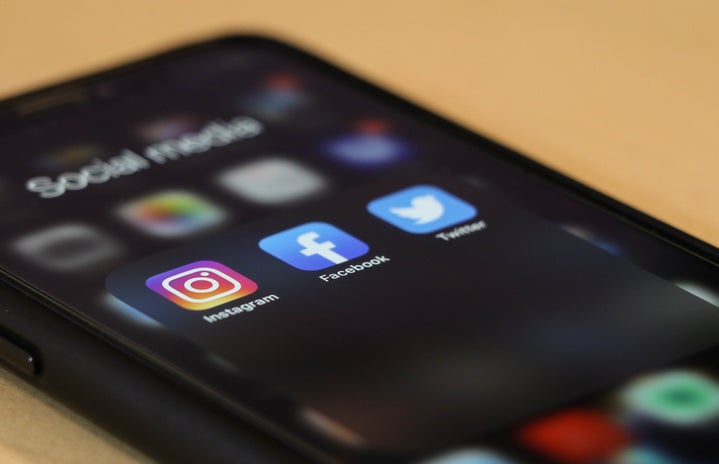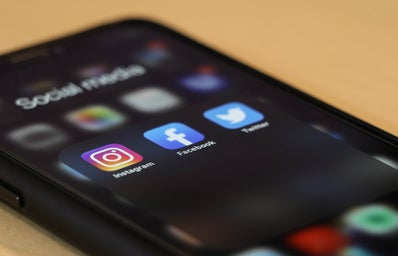Social media can’t fix your problems
Scattered all over social media are posts supplied to the masses, giving advice about all human experiences, from heartbreak to personal encounters. There will always be an endless supply of people projecting their guidance in the most unnecessary ways. From TikTok to Instagram, every swipe of your hand can bring you closer to hearing or seeing meaningless advice catered towards a person dealing with a sense of hurt. The idea itself sounds thoughtful, that when you are suffering through a loss or personal issues, you can find “help” through the many platforms that we dedicate small moments of our life to. This would create a pattern of using social media as a tool for good and self-growth rather than a hole of mindless thoughts. However, is it really a practical measure in one’s life to take advice from a TikTok account or a single post filtered to you through your Instagram feed?
Through personal experience, the social media posts that I saw scattered on my Instagram feed when I was dealing with my first heartbreak only made me feel worse. When you’re hurting or are dealing with an ending in your life, you want to deal with it in the best way your body and mind know how to. It shouldn’t be how someone else would deal with it. Hearing phrases such as, “let go of what doesn’t serve you,” “everything happens for a reason” and “move on” only pushes on your hurt deeper. Sometimes you’re not ready to hear those things for a few months or weeks, and sometimes the thought of “letting go” so soon makes you feel sick. These posts push you to try and heal open wounds way before you even notice they need to be healed. Pushing the timeline of your hurt only creates more animosity towards yourself and your situation.
Through its critical undertones, unsolicited advice from social media perpetuates that the way other people need to process is not good enough, or that they need to enable certain mindsets within each situation in order to gain satisfaction. When someone is hurting and not at the level to entertain certain affirmations, swiping through unsolicited advice can cause more interpersonal animosity.
People through a screen don’t know your experiences or how you need to process the substance in your life to pass the pain. These posts push a narrative of avoidance by repressing feelings and emotions, without allowing the individual dealing with the problem to be present with how they feel. Everyone is allowed to deal with their hurt and pain in the way they know best for themselves. Although that task is difficult, it holds powerful benefits for each individual. You’re allowed to miss someone, be sad, cry, yell or grieve for however long it takes. You should take advice that helps you prosper on your own timeline. Speeding up a recovery process can only make the injuries worse, so take your time. With everything that enters and leaves your life, you know best—not anyone else.


